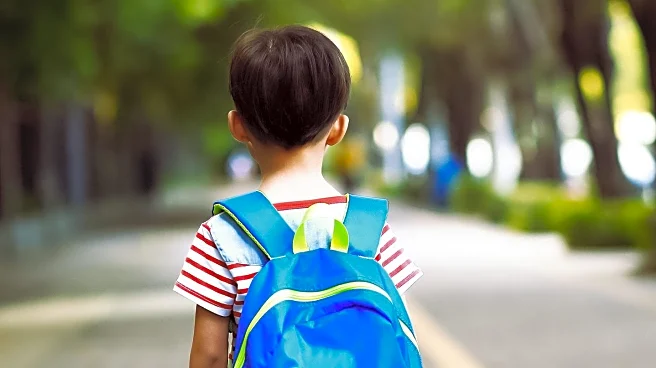What's Happening?
As young children begin preschool or kindergarten, separation anxiety can be a significant challenge. Experts emphasize that this anxiety is a natural part of growing up, but prolonged symptoms may require attention. Psychologists suggest strategies such as validating children's feelings while maintaining firm boundaries, gradually exposing them to separation, and establishing routines to ease transitions. Parents are encouraged to foster bravery in their children by allowing them to confront uncomfortable situations, which can build resilience and self-soothing skills.
Why It's Important?
Separation anxiety can impact children's ability to adapt to new environments and hinder their social and educational development. Addressing this issue is crucial for fostering resilience and independence in young children, which are essential skills for their future success. By implementing effective strategies, parents and educators can support children in overcoming anxiety, promoting a positive school experience and laying the foundation for lifelong learning and emotional well-being.
What's Next?
As the school year progresses, parents and educators may continue to monitor children's adjustment to school environments. If anxiety persists, consulting with pediatricians or child psychologists may be necessary to explore further interventions. Schools may also consider implementing programs that support emotional development and provide resources for parents to help their children navigate separation anxiety.
Beyond the Headlines
The approach to managing separation anxiety in children reflects broader societal values around independence and emotional resilience. Encouraging children to face challenges can contribute to their long-term development, preparing them for future transitions and fostering a sense of self-efficacy. This perspective aligns with educational philosophies that prioritize holistic development and emotional intelligence.









